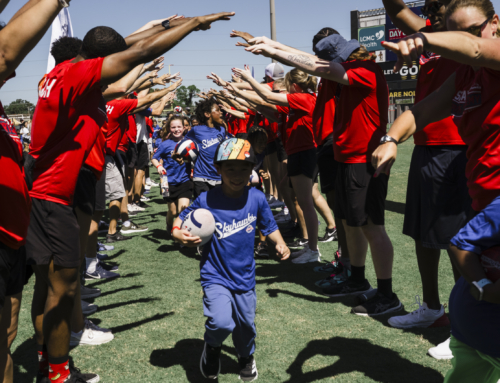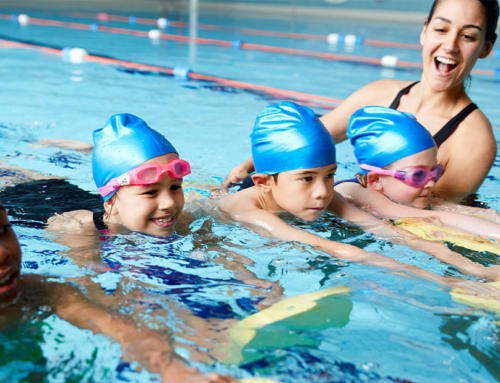Do you want your team to perform at its best on game day?
Then you need to be at your best as a coach.
Avoid feeling ill-prepared and anxious because it’s likely that your behavior or body language will reflect this. Your team will pick up on the signals, distracting itself from its own performance.
And if you’re sharp and at your best, then the team will likely act that way too.
Here are some ideas to help you get the most out of your squad on game days:

Be Prepared
As every good scout knows, being prepared helps you cope with the expected and unexpected hazards of life.
If you’re running around chasing your tail looking for spare socks or registration forms, then you won’t be able to concentrate on your team.
One way to help ensure that you’re prepared is to use checklists. They’re common in the airline industry, where pilots and mechanics go through them extensively before every flight so that nothing is forgotten.
Atul Gawande, in ‘The Checklist Manifesto,’ describes how checklists have improved medical outcomes in surgery.
We may think we have the little things covered, but if we forget the footballs, then we can’t play.
Checklist
Here’s a checklist that I give our club athletes if they are traveling separately to the venue:
- Wake up routine
- Stretch and mentally rehearse.
- Breakfast
- Check travel information for delays/ cancellations.
- Travel to the venue.
- Checklist of events, area of competition, check-in with officials, weigh-in.
- Get changed
- Relaxation and best performance imagery.
- Warm-up, stretch, keywords.
- Tactical reminders with coach and team.
- Get to the venue
- Compete.
The list helps to process the sequence of events and understand what will be required. It also saves me having to answer the same question 100 times when we meet up.
Having the athletes prepared gives me a little more brain space. I also give them an equipment checklist and another for weightlifting that includes:
- Time of first weigh-in.
- Travel time to venue + route (So I can get there before the first athlete).
- Coaching license.
- Fully charged mobile phone with the competition venue and my lifters’ numbers programmed in.
- Food, drink, toilet paper (sometimes venues don’t have any)
- Notepad and pen.
- List of lifters, their weight class, and personal bests or suggested opening lifts.
- First aid kit, including spare tape.
I pack my bag the night before and set my alarm. I’m now ready and relaxed.
I get to the venue and walk around, say hello to the officials, and check the weight categories to see that our lifters are on there (I will have already checked that they were registered for the competition several weeks earlier).
Be Calm
I get nervous and excited on competition days. I want our lifters to do well and not get hurt.
And I don’t want to mess up their day by making an error in the warm-up area or missing the sequence of lifts. But I can’t let the lifters see that my stomach is doing somersaults because they will be nervous and excited enough.
Stress is contagious, and coaches who get agitated will transmit that to their teams.
There’s a time and a place for cheering and screaming, depending on the individual athlete. Some will bounce around on the balls of their feet and rush through the warm-ups. Those athletes might need help calming down to avoid mistakes in the opening few minutes of competition.
Others will look withdrawn and quiet, either focused or anxious. Don’t be the same; leave them alone.
There will be a few athletes who need some ‘Hoorah’ shoulder slapping and ‘attagirls,’ but you need to know that beforehand.
If you do think shouting and hollering are a necessary part of your coaching repertoire, then do it thoughtfully. Don’t do it because you’re emotional.
Think of yourself as the eye of the tornado, and all around you, the athletes are swirling in emotions, but you are the calm center that allows them to refocus.
Be Supportive
The athletes’ mind often spins chaotically. If you’re negative or dismissive of your athlete, then you’re just risking increased agitation.
I’ll always assume that my athletes are trying their hardest. The mistakes they make in the competition are just that: mistakes. What we don’t want is for them to repeat those mistakes or tighten up and be inhibited because they are too afraid to ‘go for it.’
A quiet word of reassurance to the receiver who has dropped the ball may build up their confidence for them to make the next catch.
Don’t shout vague terms of singular phrases. Be specific with your coaching.
Say something like, ‘finish the pull’ or ‘fast hips’ as coaching cues you regularly use in practice. They’re familiar reminders for athletes who need to concentrate on the process rather than the outcome.
And Finally
Win or lose, and you’ll have to coach the players again the next week.
Think carefully before chewing anyone out after a loss.
You can be stern and make corrections at the coaches’ meeting in a few days. The players will be despondent enough after a loss, so don’t make things worse.
No emotion from you doesn’t mean you care any less. But always keep the critiques team-oriented; avoid singling out an individual.
Original Article Posted On Stack.com
Read more:




